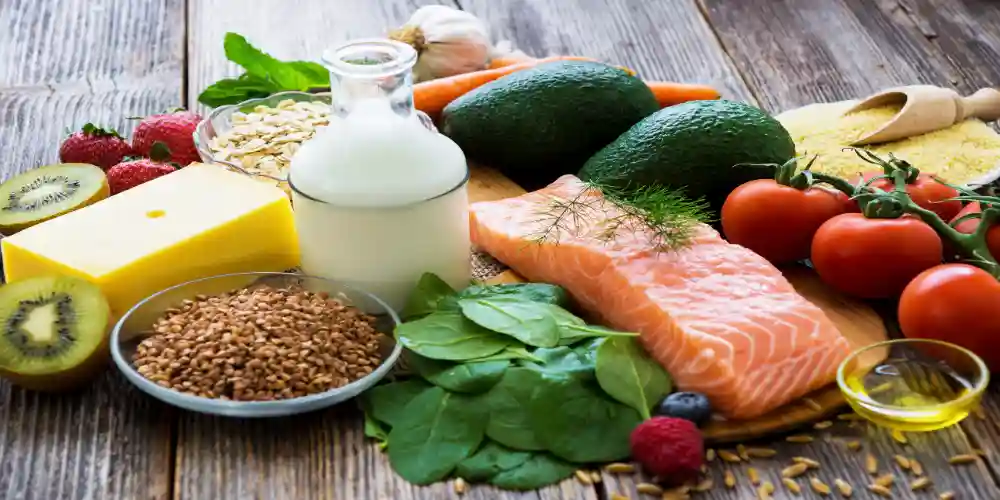
Why Is Healthy Food Important In Our Daily Life?
Food provides the nutrients we need to stay healthy and have energy. Eating a balanced diet helps reduce your risk for chronic diseases like heart disease and cancer.
Avoid foods that contain unhealthy fats and added sugars. Choose whole grains, fresh fruits and vegetables, and lean meats. Learn how to read food labels.
Eating Healthy Is Essential
Healthy eating involves consuming a wide variety of foods that supply the body with protein, fat, carbohydrates, vitamins, minerals and water. This helps to maintain the body’s everyday functions and promotes optimal body weight, as well as assisting in disease prevention. Eating well also contributes to a positive mood and more energy.
Unhealthy dietary habits are a leading cause of global risk factors for non-communicable diseases, including heart disease and diabetes. A healthy diet consists of eating a variety of nutritious and balanced foods, while limiting the intake of unhealthy foods, such as sugary beverages, processed meats, saturated fats and trans fats.
When it comes to healthy food, you should eat a lot of whole grains, fruits and vegetables, nuts and seeds, and lean protein. Try to avoid high-fat foods and limit alcohol, sugary drinks, and sodium. A well-balanced diet also contains healthy fats and oils, such as olive oil and canola oil.
You should also aim to eat a portion of oily fish a week for the omega-3 fatty acids it contains, and make sure you’re getting your five a day of fruit and vegetables. In addition, it’s a good idea to eat legumes (beans, lentils and peas), which are full of fibre and protein as well as B vitamins and potassium. A diet containing these foods can help to reduce the risk of heart disease, cancer, and obesity.
It Can Help You Lose Weight
Healthy eating is a way of choosing foods that give you the nutrients your body needs. It involves a balance of protein, carbohydrates, fats, water and vitamins and minerals. Eating well can help you lose weight, feel more energetic and protect against diseases such as heart disease, stroke, diabetes and cancer.
A diet rich in whole foods can help you control your appetite and lower your risk of obesity. It is important to eat a variety of vegetables, fruits and lean proteins. It is also important to eat food that is low in saturated fat, sodium and added sugars. Avoid processed foods and instead choose those that are baked, broiled, roasted or steamed rather than fried.
Foods high in saturated fat can raise your cholesterol and lead to heart disease. Eating low-fat dairy, skinless poultry and fish, whole grains and nuts can help you cut back on saturated fats.
Consuming a balanced diet with plenty of vegetables, fruits and lean protein helps reduce your risk for heart disease, high blood pressure and diabetes. It also supports healthy bones, immune function and mental health. Eating well can also boost your energy levels and reduce stress and depression. Incorporating healthy foods at a young age can form lifelong habits that will affect your diet and overall health. In addition to protecting your health, a healthy diet is less expensive than eating unhealthy foods.
It Can Help You Stay Healthy
Eating healthy is the best way to keep your body strong, fit and able to fight off disease. It also helps you stay at a healthy weight and lowers your risk for heart disease, cancer, high blood pressure and diabetes. It also contributes to your mental health, as it reduces stress and mood disorders.
The healthiest diets contain a variety of foods from all the major food groups. The foods you choose should be low in saturated fat, added sugars, and sodium. You should also limit alcoholic beverages and avoid foods with trans fats. Be sure to include foods rich in calcium, iron and potassium.
Healthy eating habits are important at all ages and stages of life. Your dietary needs change as you age, so you must adjust your food choices to meet those needs. People with healthy eating patterns have a lower risk for chronic diseases such as heart disease, type 2 diabetes and obesity.
You can eat healthier by choosing whole grains, lean proteins, fruits and vegetables, and fat-free dairy products. You can also get your vitamins and minerals from supplements or fortified foods if necessary. However, you should never rely on these to replace the need for a balanced diet. The best way to eat healthy is to prepare your own meals at home using fresh ingredients.
It Can Help You Feel Better
It’s no secret that a healthy diet can help you feel better. A balanced diet provides the energy, nutrients and vitamins necessary for your body to function at its best. Eating well can also help you lose weight, manage chronic diseases and prevent health problems.
However, it’s important to avoid foods that are high in sugar, salt and saturated fat, which can contribute to health problems like heart disease, high blood pressure, diabetes, and obesity.
A healthy diet includes plenty of fresh fruits, vegetables, and whole grains and low-fat dairy. It also includes lean meats, fish and poultry, beans, nuts and seeds. It’s also important to avoid processed and refined foods. These foods are often higher in calories and contain fewer nutrients than their natural, unprocessed counterparts.
It can be difficult to switch to a healthier diet, but there are many things you can do to make the transition easier. For example, you can eat smaller meals and snacks, cut out soda, and avoid emotional eating. You can also try to avoid foods that are high in sodium, saturated fat and added sugars. You should also aim to eat more dietary fiber, which can help you feel full and reduce hunger. Foods with a high dietary fiber content include whole grains, oats, barley, rye, potatoes, tapioca and starchy roots such as cassava, taro or yam.